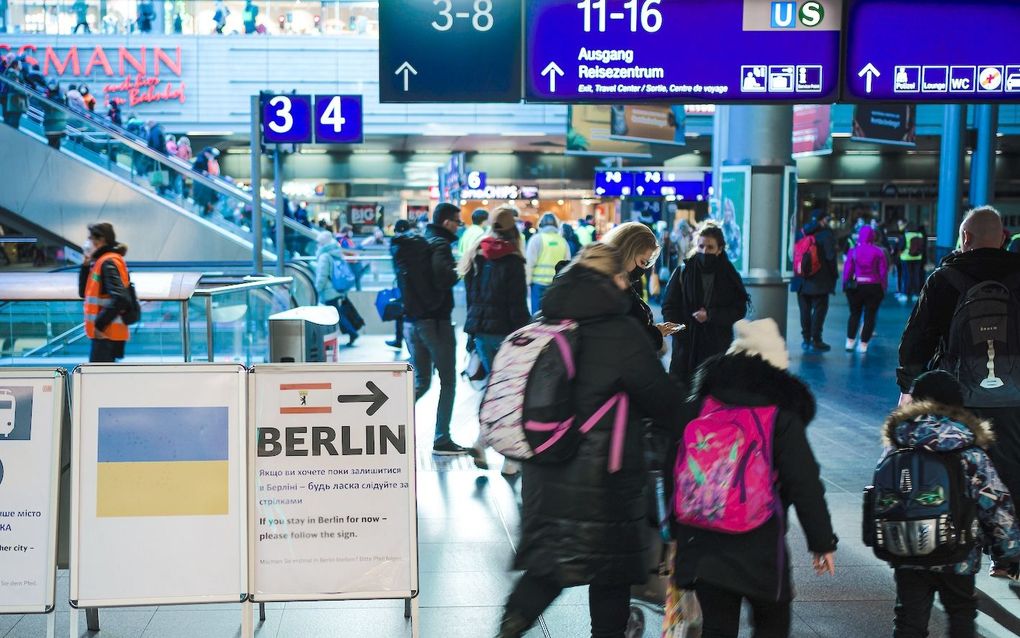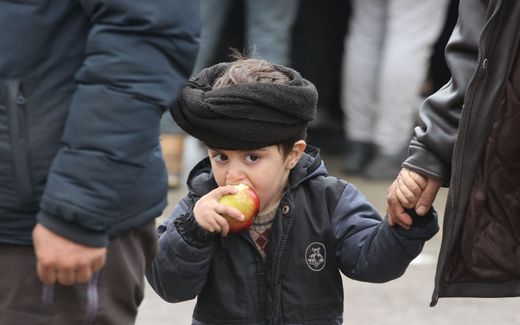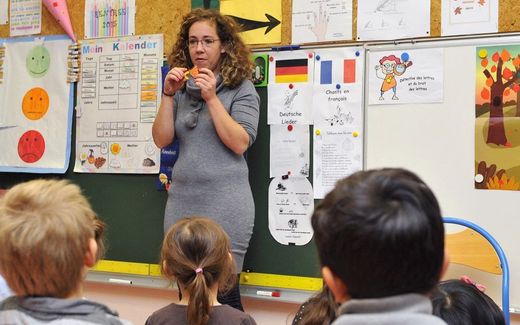Weekly column: Can I be happy with German weapons for Ukraine?

Ukrainian refugees at Berlin train station. Photo EPA, Clemens Bilan
Christian Life
I was very pleased. Today ‘my’ German Chancellor promised to send Ukraine the most modern and deadly weapons produced in Germany. So new and modern that the German army does not even have them in use yet (or not enough, and he therefore asked the Netherlands to also give Ukraine some of the German-made howitzers).
This, my Chancellor said in the German Parliament, was a break with the German tradition since World War II of not supplying weapons to war zones.
And I was pleased about that. But as a German Christian, I immediately asked myself: Can I be happy about that? Wasn't it exactly in Ukraine, that German heavy weapons brought disaster to the region and its people 80 years ago? That was the time when Hitler ordered my grandfathers' generation to march east with heavy weapons. Back then, Hitler's war of aggression and the associated Holocaust were a grave sin.
Times change
Today, everything is different. Today, Germany is berated from Central Europe for being far too slow and supplying far too few heavy weapons to defend Ukraine.
And that is the difference, so I calm my agitated conscience: Three generations later, unlike back then, Germany is firmly anchored in the community of nations. Now, the country is ready, together with our neighbours, to defend our common freedom against a tyrant who believes he is allowed to destroy and conquer foreign countries with the most brutal force.

Wolfgang Stock was born in 1959 in Hanover, West Germany, as the child of refugees from the Eastern GDR. He studied history and international politics in Würzburg and Oxford, where he also received his doctorate. He is a board member of the German Evangelical Alliance. He worked as a journalist for many years, wrote several political books, including the first biography of Angela Merkel in 2000. He lives in Karlsruhe with his wife. They have five grown-up children and three grandchildren.
Even if Ukraine is not part of NATO, it is also defending the freedom of all of us in Western and Central Europe. And although the missile strikes on the Polish-Ukrainian border are a nine-hour drive from Berlin – the war and its terrible consequences are felt everywhere in Germany, even in my south-west German homeland, which is located another seven hours' drive from Berlin. Almost one million Ukrainian refugees have found refuge in Germany in the last three months.
Taking care of the weak
Today, as I waited for the train at Berlin's main station after the board meeting of a Christian network, an announcement came every ten minutes for "all Ukrainian travellers" with instructions on where to turn for help as refugees after arriving from the East.
Ukrainian refugees are everywhere, and the people's willingness to help is huge: most refugees were invited into homes of complete strangers. Nevertheless, the municipalities are at the limit of their capacity: the refugees do not only need housing, but medical care, kindergarten places, school places etc.
Widows and orphans are already often mentioned in the Old Testament, they symbolise the weak, for whom God himself intercedes (Deuteronomy 10:18). The Law of Moses gives very clear provisions for their protection (Exodus 22:21-23; Deuteronomy 16:11-14). The prophets in the Old Testament call for the widows and orphans to be treated justly (Jeremiah 22:3).
And thus, it is no question whether we help the refugees – and at the same time pray that most of the women with their children may see their husbands and fathers, who are defending their country in Ukraine, again as soon as possible and not become widows and orphans.
What will the future bring?
At the same time, however, we are called upon, together with our politicians, to think about the future. Can it be that in the 21st century we have to put up with brutal aggressors in our neighbourhood? After all, so far wars have been far away: Afghanistan, Chechnya, Nagorno-Karabakh, Libya, Sudan, Syria.... According to the United Nations High Commissioner for Refugees (UNHCR), at least 90 million people worldwide are fleeing wars! We have looked away far too often and for too long. But now the horror has reached us at home, has many faces of young women and children – and the images of bombed cities and dead people on television shake us.
Immediately, the reactions are clear: we buy weapons and ammunition for a lot of money, and the Scandinavian nations strengthen our alliance. But, of course, that doesn't solve all our problems at all.
And it can't, because we live in a fallen world. This is also a truth that we in prosperous Western Europe have gladly suppressed in recent years: since the fall of man and the expulsion from paradise, we live in a world where evil is a reality.
Related Articles






